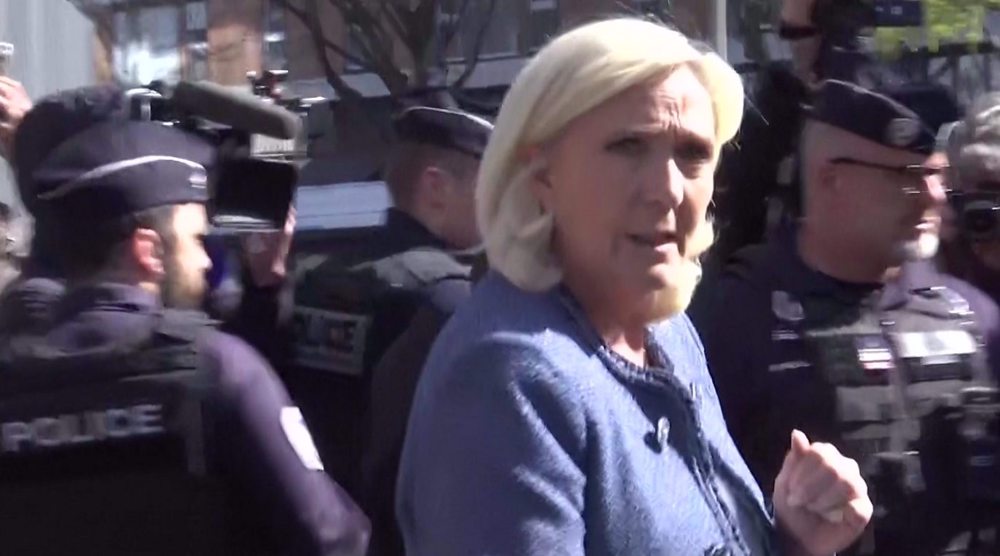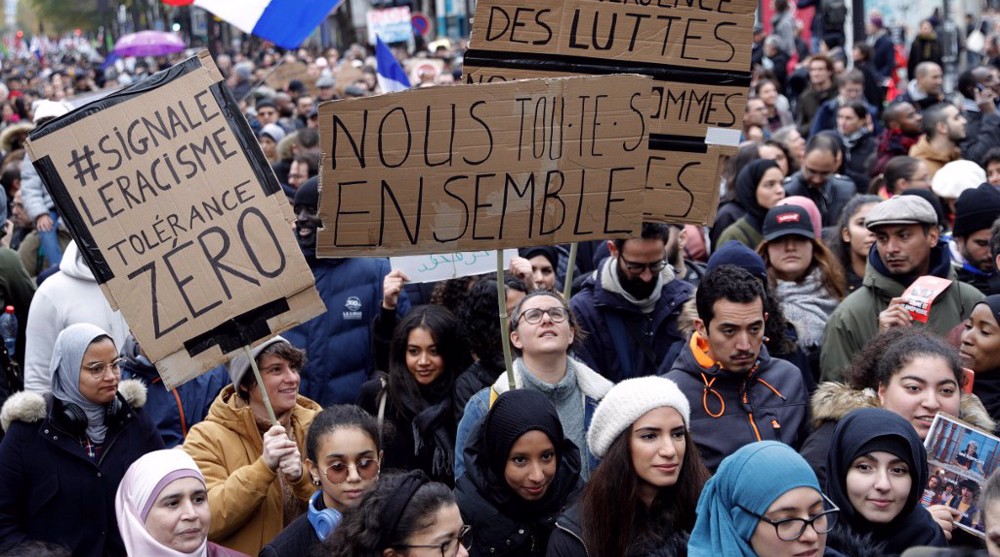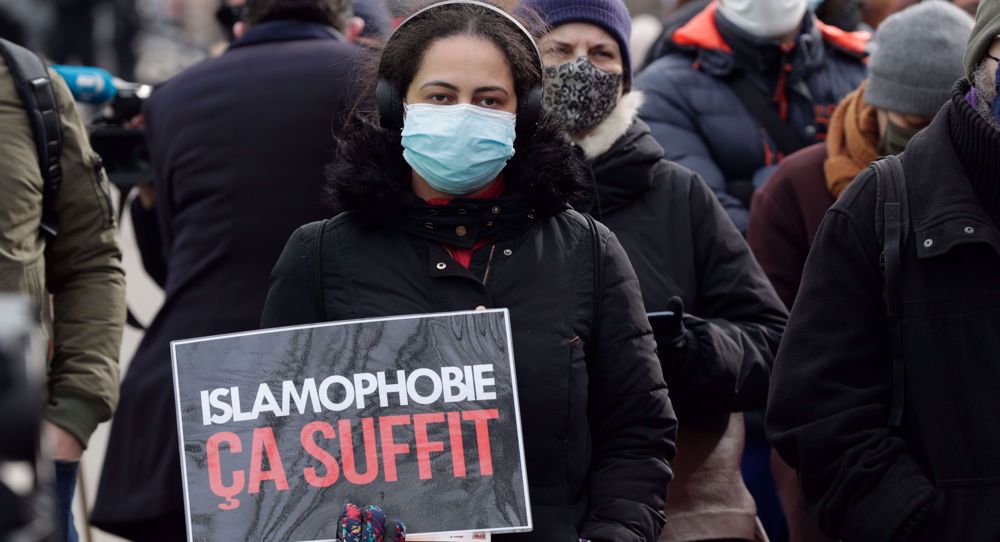Lower house of French parliament approves anti-Islam bill
The lower house of the French parliament has approved a controversial bill that it says is aimed at curbing “Islamist separatism” but that has raised concerns about targeting religious freedom and stigmatizing Muslims.
French lawmakers passed the bill — originally dubbed the “anti-separatism” bill — at the French National Assembly on Tuesday, with 347 legislators voting in favor, 151 against, and 65 abstaining.
The legislation will now be passed to France’s upper house, the conservative-led Senate, where French President Emmanuel Macron’s party does not hold a majority.
“It’s an extremely strong secular offensive,” French Interior Minister Gerald Darmanin said ahead of the vote. “It’s a tough text... but necessary for the republic.”
Among the more than 70 articles of the legislation, there are those about tough measures against online apologists for acts of violence.
The legislation also expands the ability of the state to close places of worship and religious schools, as well as to ban extremist preachers.
It also tightens rules on the funding of mosques, associations, and non-governmental organizations belonging to Muslims.
The French government says the bill will strengthen the country’s secular principles, but critics argue it targets the Muslim community and imposes restrictions on almost every aspect of their lives.
The bill was introduced by Macron last year supposedly to stamp out what he called “Islamist separatism” following the murder of a school teacher by a Muslim teenager of Chechen origin.
Teacher Samuel Paty was murdered after he showed his students insulting caricatures of Prophet Muhammad (PBUH) earlier published by the magazine Charlie Hebdo. The assailant was killed by French police near the scene of the attack.
On Sunday, people took to the streets of the French capital, Paris, to demand that the draft law be scrapped over concerns that it would turn all Muslims into potential suspects.
The protesters said the government was targeting a whole community because of a single act of crime.
Meanwhile, far-right French politician Marine Le Pen has accused Darmanin of not tackling Islam head on.
“You are restricting everyone’s freedom to try to modify the freedoms of a few Islamists,” she told Darmanin in a debate last week, referring to the curbs on home-schooling.
The latest development comes before presidential elections next year and amid long-running divisions about the integration of France’s large Muslim population. France’s Muslims are estimated to number at about five million.
The French government has adopted an anti-Islam stance in recent months, intensifying raids and pressure on mosques and Muslim associations.
As part of the crackdown against Muslims, French authorities last year ordered a six-month shutdown of the Grand Mosque of Pantin in a low-income Paris suburb.
Macron previously sparked controversy by making insulting remarks against Islam and defending the republication of the sacrilegious cartoons of Prophet Muhammad (PBUH) in the name of “freedom of speech.”
His remarks sparked protests across the world and prompted calls for the boycott of French goods.
Anti-Muslim sentiments have been on the rise across Europe in recent years in the wake of terrorist attacks in the continent. The attacks were carried out by the sympathizers of the terrorist group of Daesh or those of its members who had returned home following defeat in Iraq and Syria.
Muslim leaders in Europe and around the world have reiterated their unequivocal condemnation of the terrorist attacks.

French police bludgeon students protesting budget cuts in Paris

French far-right leader Le Pen barred from presidential race after embezzlement conviction

Tens of thousands protest racism, support Gazans in Europe
VIDEO | Massive Friday protests in Yemen: Call for end to US, Israeli aggressions
Leaked docs. expose Israeli censorship campaign to erase pro-Palestinian content online
Yemen targets Israeli military sites in Jaffa in retaliation for Israel’s Gaza genocide
Leaked emails show German officials pressing staff into deporting pro-Palestine activists
Thousands of Pakistanis rally to censure Israeli crimes in Gaza
‘Gaza is not alone’: Yemenis hold million-man protests to show solidarity with Palestinians
VIDEO | Iranians rally to condemn Israeli atrocities in Gaza
VIDEO | Record surge in Israeli home demolitions across occupied West Bank












 This makes it easy to access the Press TV website
This makes it easy to access the Press TV website